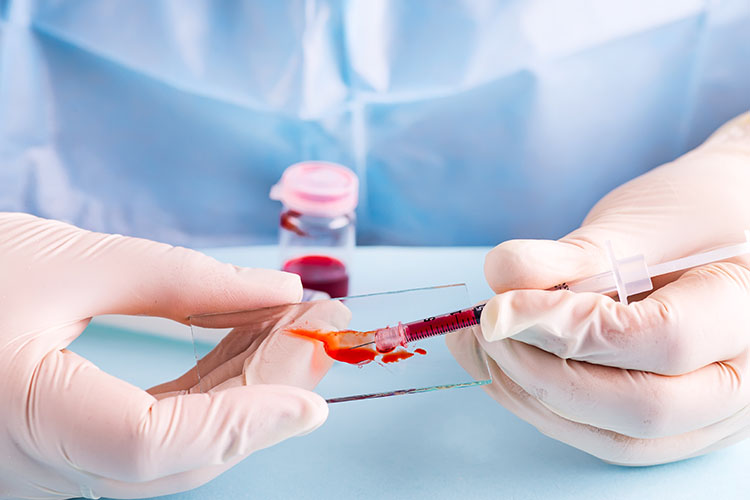Summary
Kidney cancer is a type of cancer that originates in various parts of the kidneys, such as the adrenal gland, renal pelvis, renal fat tissue, renal tubes, renal capsule, or the kidney itself. Doctors are not entirely sure why tumors form in the kidneys, but it is believed that DNA mutations in kidney cells may trigger abnormal cell growth. Additionally, certain factors may increase the risk of kidney cancer, including smoking, obesity, and high blood pressure. However, even healthy individuals with no known risk factors can develop kidney cancer, especially if there is a family history of the disease.
Symptoms of kidney cancer may include blood in the urine, a lump or mass on the side of the abdomen, pain in the side, fever, extreme fatigue, sudden weight loss, and more. In early stages, kidney cancer often has no symptoms, so many cases are diagnosed incidentally through imaging for other conditions.
It is important to note that not all tumors in the kidney are cancerous. In fact, around 20% of kidney tumors are benign and do not spread. To confirm a diagnosis of kidney cancer, a doctor may order diagnostic tests such as urine and blood tests, CT scans, MRIs, and ultrasounds. Once kidney cancer is diagnosed, the doctor will recommend the most appropriate treatment based on the cancer’s stage and the patient’s health. Treatment options include surgery, targeted therapy, immunotherapy, chemotherapy, and radiation therapy, with the choice depending on the tumor’s type and progression.
Table of Contents
Symptoms of Kidney Cancer

In the early stages of kidney cancer, patients may not notice any symptoms or unusual sensations in their bodies. However, as the tumor grows, the following symptoms may appear:
- Blood in the urine. This is one of the most common symptoms, and the blood may be visible or detected through lab tests.
- Lump or swelling in the side or abdomen. A noticeable mass or bulge on the side or in the abdominal area may indicate a growing tumor.
- Persistent pain in the side. A constant ache or pain on one side of the lower back or flank area can occur as the tumor enlarges.
- Fever. Recurring fevers without any clear infection can sometimes be associated with kidney cancer.
- Extreme fatigue. As the body fights the cancer, patients may feel significantly weaker and more tired than usual.
- Loss of appetite. Decreased interest in food is common, leading to weight loss.
- Sudden weight loss. Rapid and unexplained weight loss is a concerning sign of advanced cancer.
- Anemia. Low red blood cell levels can develop, leading to weakness and pale skin.
- Swelling in the legs and ankles. Fluid buildup, often due to reduced kidney function, can cause swelling in the lower extremities.
In more advanced stages, kidney cancer can lead to breathing difficulties, coughing up blood, and bone pain as the cancer spreads. Early diagnosis and treatment are essential, as symptoms often intensify as the disease progresses, impacting the patient’s overall health.
Types of Kidney Cancer
To provide appropriate treatment for kidney cancer, a doctor must first identify the specific type of kidney cancer affecting the patient. Here are some of the main types of kidney cancer:
- Renal cell carcinoma (RCC). This is the most common type of kidney cancer in adults, accounting for approximately 90% of kidney cancer cases. In RCC, tumors form in the proximal renal tubes of the kidneys, where blood filtration occurs.
- Transitional cell carcinoma. In this type, tumors develop in the renal pelvis, the part of the kidney where urine collects before flowing to the bladder. Transitional cell carcinoma shares characteristics with bladder cancer and may require similar treatment approaches.
- Renal sarcoma. Renal sarcoma is a rare form of kidney cancer where tumors grow in the renal capsule, the thin layer of tissue surrounding and protecting the kidney. Because these tumors are prone to recurrence, renal sarcoma often requires multiple surgeries and chemotherapy sessions for effective management.
- Wilms tumor. Wilms tumor is a type of kidney cancer that primarily affects children aged 3 to 4. The prognosis is generally positive, with 80–90% of children responding well to treatments such as surgery, chemotherapy, and radiation therapy, leading to high survival rates.
- Kidney lymphoma. In this condition, the kidneys enlarge due to swelling of lymph nodes within the kidney. Kidney lymphoma often coincides with swollen lymph nodes in other areas, such as the neck, chest, and abdomen, and may be associated with systemic lymphoma.
Identifying the specific type of kidney cancer is crucial, as it helps guide the most effective treatment plan. Early diagnosis and targeted treatment options increase the chances of successful outcomes and can greatly improve a patient’s quality of life.
Diagnostic Procedures for Kidney Cancer

Diagnosing kidney cancer involves a series of tests and evaluations to confirm the presence of cancer, determine its type, and assess the stage. Early detection is crucial, as it allows for more effective treatment options and a better prognosis. Here are the standard diagnostic procedures for kidney cancer:
- Physical examination and medical history review. A doctor will begin by discussing the patient’s symptoms and risk factors, including any family history of kidney cancer, lifestyle factors like smoking, and underlying health conditions. A physical examination may reveal lumps or swelling in the abdominal area or other symptoms associated with kidney cancer.
- Urine and blood tests. Blood and urine tests can provide clues about kidney function and detect signs of cancer. Blood tests may show abnormal levels of certain enzymes or low red blood cell counts (anemia), which can indicate kidney issues. Urine tests help detect blood in the urine, a common sign of kidney cancer.
- Imaging tests. Imaging techniques are crucial in detecting and evaluating kidney tumors.
- Ultrasound: This test uses sound waves to create images of the kidneys and can detect masses or abnormalities.
- CT scan (computed tomography): A CT scan provides detailed, cross-sectional images of the kidneys and surrounding areas, allowing doctors to assess the size and location of any tumors.
- MRI (magnetic resonance imaging): MRI scans use magnetic fields to create detailed images of soft tissues. They are especially helpful in evaluating tumors and determining if they have spread.
- Biopsy. In cases where imaging results are inconclusive, a doctor may recommend a biopsy. This involves inserting a thin needle into the kidney to collect a tissue sample, which is then examined under a microscope to check for cancer cells. Biopsies help confirm the diagnosis and provide information about the tumor’s type and aggressiveness.
- Bone scan. If there is a possibility that the cancer has spread, particularly to the bones, a bone scan may be performed. This procedure uses a small amount of radioactive material to detect cancer spread and is generally recommended for more advanced cases.
- Chest X-ray. Since kidney cancer can spread to the lungs, a chest X-ray may be ordered to determine if the cancer has metastasized beyond the kidneys.
These diagnostic procedures enable healthcare providers to accurately diagnose kidney cancer, determine its type and stage, and develop a personalized treatment plan. Early and thorough evaluation is critical for guiding effective treatment and improving patient outcomes.
Complications of Untreated Kidney Cancer
Untreated kidney cancer can lead to a range of complications, as the cancerous cells continue to grow and spread, impacting not only the kidneys but also other organs and systems. Here are some potential complications that may arise if kidney cancer is left untreated:
- Spread (metastasis) to other organs. Kidney cancer can spread to nearby organs, such as the lungs, liver, bones, and brain, through the bloodstream or lymphatic system. Once cancer spreads, treatment becomes more challenging, and the likelihood of successful outcomes decreases.
- Impaired kidney function and kidney failure. As the tumor grows within the kidney, it can affect the kidney’s ability to filter waste and regulate essential bodily functions, leading to chronic kidney disease or kidney failure. This may require dialysis or even a kidney transplant if left unaddressed.
- High blood pressure (hypertension). The kidneys play a crucial role in regulating blood pressure. As kidney cancer progresses, it can interfere with this regulation, leading to persistent high blood pressure, which increases the risk of heart disease, stroke, and other serious health conditions.
- Anemia. Kidney cancer can disrupt the kidney’s production of erythropoietin, a hormone that stimulates red blood cell production. Reduced erythropoietin levels can lead to anemia, causing fatigue, weakness, and pale skin as the body struggles to deliver sufficient oxygen to tissues.
- Bone damage and fractures. If kidney cancer spreads to the bones, it can weaken them, leading to pain, damage, and an increased risk of fractures. Bone metastases may also cause calcium to leak into the blood, resulting in hypercalcemia (high calcium levels), which can cause additional complications like nausea, vomiting, confusion, and kidney stones.
- Fluid buildup and swelling (edema). When kidney function is compromised, the body may struggle to remove excess fluids, resulting in edema, or swelling, particularly in the legs and ankles. This can lead to further discomfort and complications in circulation and mobility.
- Shortness of breath and respiratory issues. If kidney cancer spreads to the lungs, it can lead to respiratory complications, including persistent coughing, shortness of breath, and chest pain. Advanced lung involvement may severely impact breathing and overall lung function.
Leaving kidney cancer untreated allows it to progress and significantly worsen health outcomes. Timely diagnosis and intervention are critical to managing the disease, reducing complications, and improving the quality of life for those affected.
Causes of Kidney Cancer
There is no exact known cause for kidney cancer, but it may develop when cells in the kidney undergo mutations in their DNA. DNA contains the instructions that tell cells how to function. For instance, if DNA mutations instruct kidney cells to grow and divide uncontrollably, these cells can accumulate and form a tumor. Over time, these abnormal cells can crowd out healthy cells, impair kidney function, and potentially spread to other parts of the body if left untreated.
Understanding these DNA changes is important, as research into genetic mutations is helping scientists develop targeted therapies that may stop or slow the progression of kidney cancer.
Prevention of Kidney Cancer

To reduce the risk of developing kidney cancer, it’s essential to keep the kidneys healthy and maintain overall wellness. Here are some recommended preventive measures:
- Avoid smoking. Smoking introduces harmful chemicals that increase the risk of kidney cancer and other serious health issues. Quitting smoking significantly lowers this risk.
- Maintain a healthy blood pressure. High blood pressure can strain the kidneys, so managing it through lifestyle changes, medication (if necessary), and regular monitoring is important for kidney health.
- Achieve and maintain a healthy weight. Obesity is a known risk factor for kidney cancer, so maintaining a balanced diet and regular exercise helps reduce this risk.
- Eat a diet rich in fruits, vegetables, and low-cholesterol foods. A diet high in fiber and low in cholesterol supports kidney health by reducing the likelihood of high blood pressure and improving overall bodily function.
Following these steps promotes kidney health and may reduce the risk of kidney cancer, particularly for individuals with a family history or other risk factors. Regular check-ups with a healthcare provider are also beneficial for monitoring and maintaining kidney health.
Risk Factors for Kidney Cancer

The risk of developing kidney cancer may increase due to the following factors:
- Aging. Kidney cancer is more common in older adults, with risk increasing as people age, typically after age 50.
- Smoking. Smoking significantly raises the risk of kidney cancer, as harmful chemicals in cigarettes can damage kidney cells.
- Obesity. Excess body weight is a known risk factor for kidney cancer, as it alters hormone levels and may lead to chronic inflammation, which can affect kidney function.
- High blood pressure. Hypertension (high blood pressure) increases the risk of kidney cancer, potentially due to its impact on blood vessels and kidney strain over time.
- Other health conditions, such as chronic kidney disease and genetic disorders. Individuals with chronic kidney disease, particularly those on long-term dialysis, have an increased risk of kidney cancer. Additionally, certain genetic conditions, such as Von Hippel-Lindau disease, can also elevate risk.
- Family history of kidney cancer. A family history of kidney cancer may indicate a genetic predisposition to the disease, increasing a person’s risk.
Being aware of these risk factors can help individuals take preventive measures and seek regular check-ups, especially if they have multiple risk factors. Early detection and lifestyle adjustments can play a crucial role in reducing the risk of kidney cancer.
Kidney Cancer FAQs
Kidney cancer, also known as renal cancer, begins in the cells of the kidneys and can develop in various parts of the organ. While the exact cause of kidney cancer isn’t fully understood, there are known risk factors and early symptoms that may help with detection and prevention. Here are some frequently asked questions about kidney cancer, including its symptoms, causes, treatment options, and prevention strategies.
- What is kidney cancer?
Kidney cancer is a type of cancer that starts in the kidneys, which are responsible for filtering waste from the blood. It often begins as a small tumor in the kidney’s cells, which can grow and, if untreated, spread to other parts of the body. - What are the symptoms of kidney cancer?
Early-stage kidney cancer may not show symptoms, but as it progresses, common symptoms can include blood in the urine, persistent pain in the side or lower back, fatigue, unexplained weight loss, and sometimes a lump or swelling in the abdominal area. - Who is at risk of developing kidney cancer?
Risk factors include smoking, obesity, high blood pressure, aging, chronic kidney disease, family history of kidney cancer, and certain genetic conditions. Men are also at a slightly higher risk than women. - Can kidney cancer be prevented?
While there’s no sure way to prevent kidney cancer, maintaining a healthy lifestyle can lower risk. This includes avoiding smoking, keeping a healthy weight, controlling blood pressure, and eating a balanced diet rich in fruits and vegetables. - How is kidney cancer diagnosed?
Doctors use imaging tests like CT scans, MRIs, and ultrasounds to detect tumors. Blood and urine tests, along with a biopsy, may also be used to confirm a diagnosis and determine the cancer stage. - What are the treatment options for kidney cancer?
Treatment depends on the stage and type of kidney cancer. Options may include surgery, targeted therapy, immunotherapy, radiation therapy, and chemotherapy. Surgery is often the primary treatment, especially for localized tumors. - What is the prognosis for kidney cancer?
Prognosis depends on the cancer’s stage at diagnosis, overall health, and response to treatment. Early-stage kidney cancer has a higher chance of successful treatment and survival. - Does kidney cancer spread to other parts of the body?
Yes, advanced kidney cancer can spread to other organs, including the lungs, bones, liver, and brain. This is known as metastasis and often requires more intensive treatment. - Are all kidney tumors cancerous?
No, not all kidney tumors are malignant. Around 20% of kidney tumors are benign and do not spread. Diagnostic tests help distinguish between benign and malignant tumors. - When should I see a doctor about kidney cancer?
If you notice symptoms such as blood in the urine, persistent pain in the side, unexplained weight loss, or extreme fatigue, it’s important to consult a healthcare provider. Early detection increases the chances of effective treatment.


